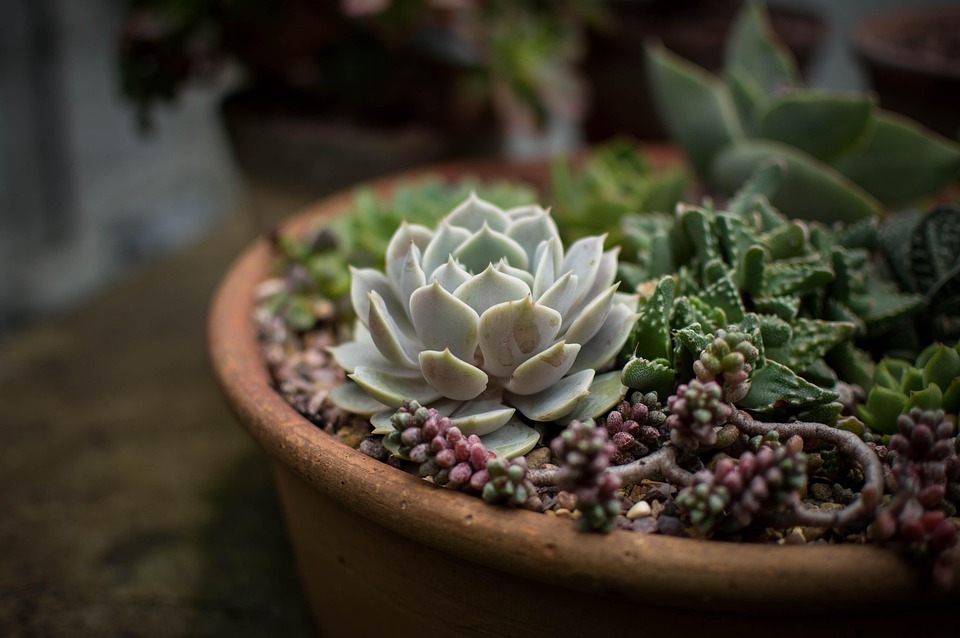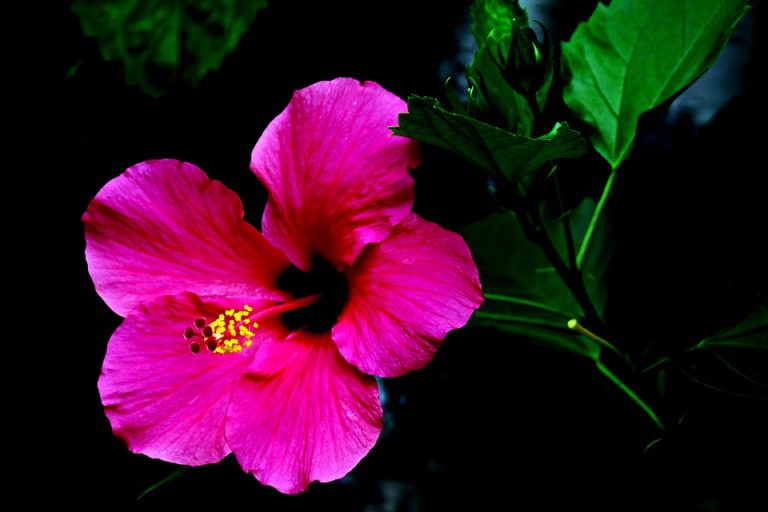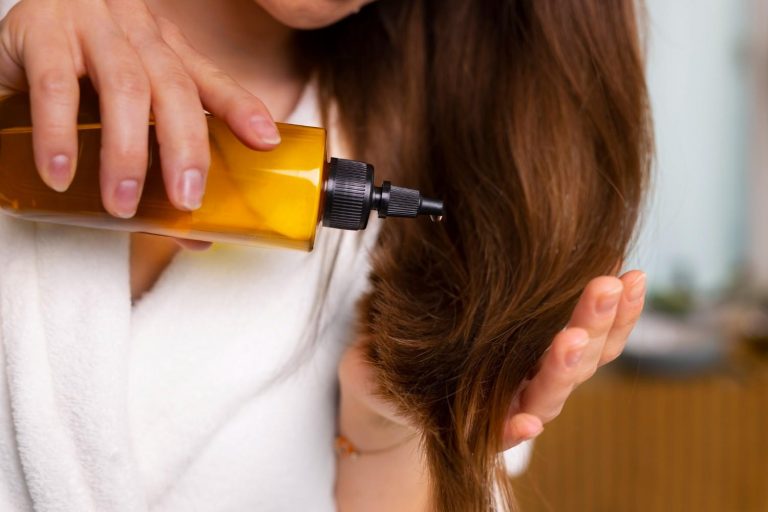Have you ever looked in the mirror and thought, “Where did all my hair go?” You’re not alone. Many people, regardless of age or gender, experience hair thinning or loss at some point in their lives. The good news? There are plenty of home remedies that can help boost your hair growth without breaking the bank. In this article, we’ll dive into ten simple remedies that you can easily incorporate into your daily routine.
Contents
- 1. Essential Oils: Nature’s Elixir
- 2. Aloe Vera: The Hair Hero
- 3. Egg Mask: Protein Power
- 4. Onion Juice: The Smelly Secret
- 5. Castor Oil: A Thickening Agent
- 6. Green Tea: Antioxidant Boost
- 7. Banana Mask: Potassium Power
- 8. Scalp Massage: The Simple Touch
- 9. Dietary Changes: Nourish from Within
- 10. Stay Hydrated: Water for Growth
- FAQs
- Conclusion
- References
1. Essential Oils: Nature’s Elixir
Essential oils like rosemary, peppermint, and lavender have been touted for their ability to stimulate hair growth. A study published in the Journal of Cosmetic Dermatology found that rosemary oil was as effective as minoxidil, a common hair growth treatment, in promoting hair regrowth after six months (Panahi et al., 2018).
How to Use:
- Mix a few drops of your chosen essential oil with a carrier oil like coconut or jojoba oil.
- Massage it into your scalp for 5-10 minutes.
- Leave it on for at least 30 minutes before washing it out.
Pros and Cons:
- Pros: Natural, aromatic, and soothing.
- Cons: May cause irritation for sensitive skin; always do a patch test first.
2. Aloe Vera: The Hair Hero
Aloe vera isn’t just for sunburns. This succulent plant is packed with vitamins and minerals that nourish the scalp and promote hair growth. It also has enzymes that can reduce dandruff, which is a common scalp issue.
How to Use:
- Apply fresh aloe vera gel directly to your scalp.
- Leave it on for about 30 minutes before rinsing it out with a mild shampoo.
Pros and Cons:
- Pros: Hydrates and soothes the scalp.
- Cons: Might not work for everyone; results can vary.
3. Egg Mask: Protein Power
Eggs are rich in protein, which is essential for hair structure. They also contain biotin, a nutrient that promotes hair growth.
How to Use:
- Whisk one or two eggs and apply the mixture to your scalp and hair.
- Leave it on for about 20-30 minutes before rinsing with lukewarm water.
Pros and Cons:
- Pros: High in protein and nutrients.
- Cons: The smell can be off-putting; requires thorough rinsing.
4. Onion Juice: The Smelly Secret
This one might make you cringe a little, but onion juice has been shown to promote hair growth due to its rich sulfur content, which improves blood circulation to the scalp. A study published in The Journal of Dermatology found that participants who applied onion juice to their scalp experienced significant hair regrowth (Thakur et al., 2002).
How to Use:
- Extract juice from an onion and apply it directly to your scalp.
- Leave it on for 30 minutes before washing it out.
Pros and Cons:
- Pros: Effective for many people.
- Cons: Strong odor that can linger; may cause irritation for some.
5. Castor Oil: A Thickening Agent
Castor oil is rich in ricinoleic acid, which has anti-inflammatory properties and promotes blood circulation. It’s also great for adding shine and thickness to your hair.
How to Use:
- Massage warm castor oil into your scalp and hair.
- Leave it on overnight and wash it out in the morning.
Pros and Cons:
- Pros: Thickens hair and adds moisture.
- Cons: Can be sticky and hard to wash out.
6. Green Tea: Antioxidant Boost
Green tea is loaded with antioxidants, particularly epigallocatechin gallate (EGCG), which has been shown to encourage hair growth.
How to Use:
- Brew a cup of green tea, allow it to cool, and apply it to your scalp.
- Leave it on for an hour before rinsing.
Pros and Cons:
- Pros: Refreshing and full of antioxidants.
- Cons: Might not be as effective as other remedies.
7. Banana Mask: Potassium Power
Bananas are not just a tasty snack; they’re also great for your hair! Rich in potassium and vitamins, bananas can help nourish and strengthen hair.
How to Use:
- Mash a ripe banana and mix it with a tablespoon of honey.
- Apply the mask to your hair and scalp, leaving it on for about 30 minutes.
Pros and Cons:
- Pros: Natural and smells great.
- Cons: Can be challenging to rinse out completely.
8. Scalp Massage: The Simple Touch
Don’t underestimate the power of a good scalp massage. It increases blood circulation, which can help stimulate hair growth.
How to Use:
- Use your fingertips to gently massage your scalp in circular motions for 5-10 minutes daily.
Pros and Cons:
- Pros: Easy to do anywhere, no products needed.
- Cons: Results can be slow; requires consistency.
9. Dietary Changes: Nourish from Within
What you eat plays a significant role in hair health. Incorporate foods rich in vitamins A, C, D, E, zinc, iron, and omega-3 fatty acids. Think leafy greens, nuts, seeds, and fatty fish.
How to Incorporate:
- Add smoothies, salads, and nuts to your daily meals.
- Consider a multivitamin if you’re not getting enough nutrients from food.
Pros and Cons:
- Pros: Holistic approach; benefits overall health.
- Cons: Requires commitment and planning.
10. Stay Hydrated: Water for Growth
Hydration is key! Water helps transport nutrients throughout your body, including to your hair follicles.
How to Stay Hydrated:
- Aim for at least 8 glasses of water a day.
- Infuse your water with fruits or herbs for added flavor.
Pros and Cons:
- Pros: Simple and essential for overall health.
- Cons: Sometimes overlooked amidst other health tips.
FAQs
1. How long does it take to see results from these remedies?
Results can vary widely depending on the individual and the remedy used. Generally, you may start seeing improvements in 4-6 weeks with consistent application.
2. Are these remedies safe for all hair types?
Most of these remedies are safe for all hair types, but always do a patch test first to avoid irritation.
3. Can I combine these remedies?
Yes! Many people find success in using a combination of these remedies, but be cautious not to overdo it, as this can lead to scalp irritation.
4. What if these remedies don’t work for me?
If you don’t see results after a few months, it might be time to consult a dermatologist or a healthcare provider for professional advice.
Conclusion
Hair growth is a journey that often requires patience and persistence. While these ten remedies can help, remember that everyone’s hair is unique. What works wonders for one person may not yield the same results for another. Always listen to your body, and don’t hesitate to seek professional advice if you have concerns. Here’s to healthy, luscious locks!
Disclaimer: This article is for educational purposes only and is not a substitute for professional medical advice. Always consult a qualified healthcare provider before making changes to your health routine.
References
-
Panahi, Y., Mojtahedzadeh, M., & Sahebkar, A. (2018). Rosemary oil as a potential treatment for androgenetic alopecia: A randomized controlled trial. Journal of Cosmetic Dermatology. https://doi.org/10.1111/jocd.12411
-
Thakur, R., & Ghosh, S. (2002). Onion juice: A potential treatment for alopecia areata. The Journal of Dermatology. https://doi.org/10.1111/j.1346-8138.2002.tb00677.x
-
Mayo Clinic. (n.d.). Hair loss: Causes and treatment. https://www.mayoclinic.org/diseases-conditions/hair-loss/symptoms-causes/syc-20364140
-
Cleveland Clinic. (n.d.). Hair loss: Causes and treatments. https://my.clevelandclinic.org/health/diseases/21124-hair-loss
Get Your FREE Natural Health Guide!
Subscribe now and receive our exclusive ebook packed with natural health tips, practical wellness advice, and easy lifestyle changes, delivered straight to your inbox.




